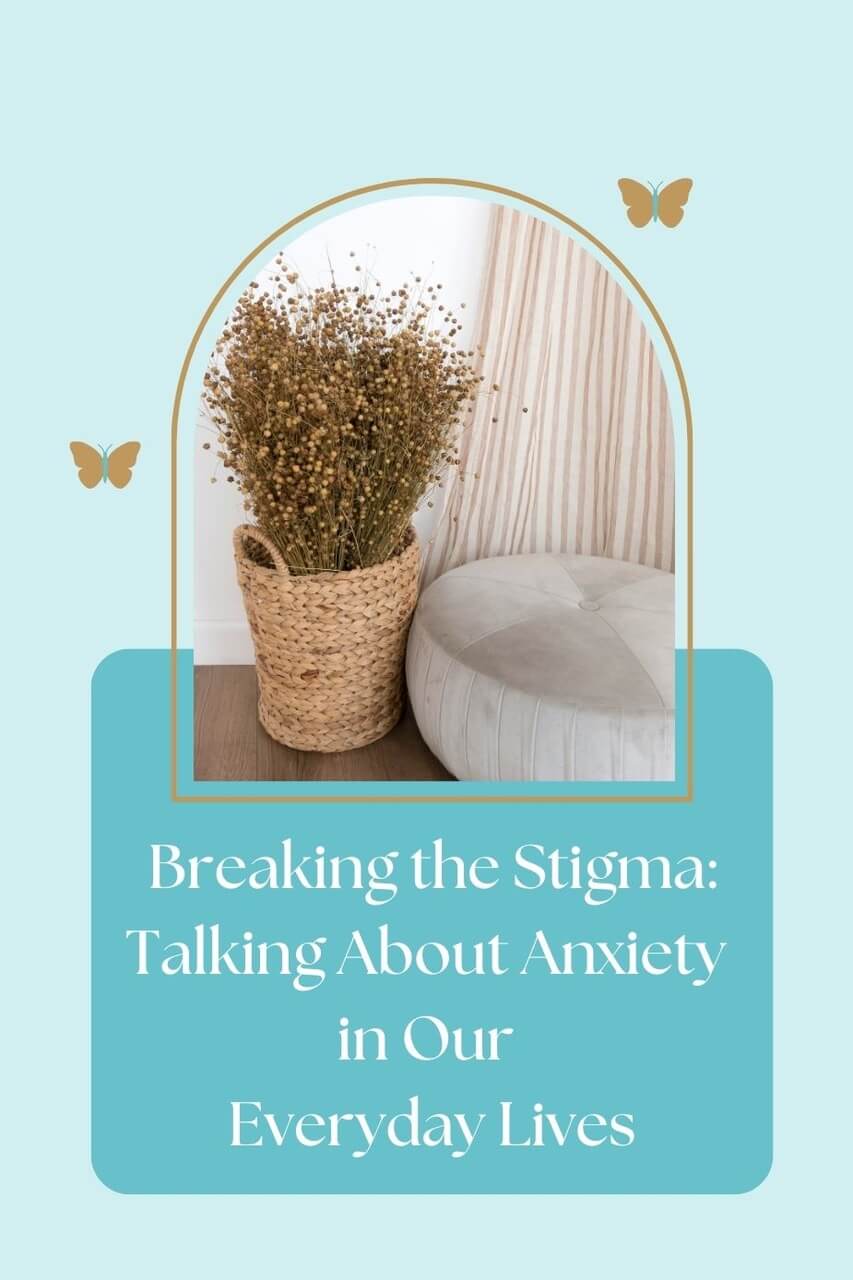Anxiety is something that many people experience but don’t always feel comfortable talking about. This silence can make anxiety feel even more overwhelming, as though it’s something to hide. But the truth is, open conversations about anxiety can make a huge difference—not just for the person experiencing it, but for everyone. In this blog, we’ll explore why talking about anxiety matters, how societal pressures contribute to its stigma, and how sharing your experience can be empowering. We’ll also look at holistic anxiety therapy and how it can be a valuable tool in managing anxiety.
The Importance of Open Conversations About Anxiety
It’s common to feel that anxiety is something to be kept private or dealt with on your own. But staying silent about anxiety can actually make it worse. When we don’t talk about our struggles, we may begin to feel isolated and misunderstood. Open conversations help to break this cycle, creating a supportive environment where anxiety can be discussed without fear of judgment.

Reducing Isolation and Normalizing Anxiety
Talking openly about anxiety helps to reduce feelings of isolation. When we share our experiences, we often find that others can relate—even if they haven’t shared their own struggles before. Anxiety is more common than many people realize, and starting a conversation helps normalize it. When we openly discuss anxiety, it becomes clear that it’s not a personal failure or weakness but a challenge many people face.
Fostering a Gentle Approach to Seeking Assistance Earlier
Another reason why open conversations are so important is that they encourage early help-seeking. When anxiety is treated early, it’s easier to manage, and the effects on daily life can be minimized. But many people suffer too long to seek help because they feel embarrassed or ashamed. By talking openly about anxiety, we reduce that barrier and make it easier for people to get the support they need sooner.
How Societal Pressures Contribute to the Stigma Surrounding Mental Health
Society often sets unrealistic expectations about how we should handle stress and anxiety. From a young age, many of us are taught to “tough it out” or “push through” tough times, leading us to believe that anxiety is a sign of weakness. These messages can be hard to shake, and they contribute to the stigma that surrounds anxiety and mental health issues.
The Role of Social Media and Perfectionism
In today’s world, social media plays a big role in fueling anxiety and the stigma around mental health. We constantly compare our lives to the seemingly perfect lives of others. This comparison can make us feel like we should always have it together, leading to a cycle of anxiety that we feel we can’t talk about. When everyone else seems to be doing great, it becomes harder to admit that you’re struggling.
Breaking Free from “Tough It Out” Mentality
Society often celebrates the idea of pushing through stress without showing vulnerability. We’re told to keep going, no matter how overwhelmed we feel. But this “tough it out” mentality only adds to the pressure and stigma. In reality, showing vulnerability and admitting when we’re struggling is a strength, not a weakness. By challenging these societal pressures, we can break the stigma and make it okay to seek help for anxiety.
Sharing Your Journey Can be a Powerful Step Toward Healing and Connection.
It can be scary to open up about anxiety, especially if you’ve been keeping it inside for a long time. But sharing your experience can be a powerful step toward healing. Whether it’s with a close friend, a family member, or an anxiety therapist, talking about your anxiety helps reduce its power over you. It can also inspire others to share their experiences, creating a ripple effect of openness and support.
How Sharing Can Be Empowering
Sharing your experience with anxiety doesn’t just help others—it helps you, too. When you talk about your struggles, you take control of your story rather than letting anxiety control you. It’s an empowering act that allows you to acknowledge what you’re going through without shame. And by sharing, you may find that others can offer support, advice, or simply a listening ear.
Building a Support System
Opening up about anxiety also helps build a support system. This could be friends or family members who understand what you’re going through or a community of people who face similar challenges. Surrounding yourself with supportive individuals can make all the difference in managing anxiety and feeling less alone.
Common Myths About Anxiety and Mental Health
There are many misconceptions about anxiety that prevent people from seeking the help they need. Let’s address some of the most common myths:
- Myth: Anxiety is just stress. Stress is a temporary reaction to specific events, while anxiety can persist even without a clear cause.
- Myth: You should be able to “get over it.” Anxiety is not something that people can simply will away. It requires understanding and support.
- Myth: Anxiety is rare. In reality, anxiety is one of the most common mental health issues people face, but it’s often not discussed openly.
By understanding the truth about anxiety, we can break down the barriers that keep people from talking about their experiences.
How Anxiety Affects Daily Life
Anxiety doesn’t just show up during big, stressful events—it can impact daily life in small but significant ways. People with anxiety may struggle with:
- Physical symptoms like headaches, muscle tension, or digestive issues.
- Emotional symptoms like irritability, constant worry, or feeling overwhelmed.
- Mental symptoms like racing thoughts or difficulty focusing.
These symptoms can make even simple tasks feel exhausting. Recognizing how anxiety affects daily life is a key step toward managing it effectively.

Holistic Anxiety Therapy: A Natural Approach to Healing
Holistic anxiety therapy offers a whole-person approach to managing anxiety, addressing not only the mind but also the body and emotions. This approach often includes techniques like mindfulness, breathwork, somatic practices, and emotional awareness.
Is Holistic Anxiety Therapy Effective?
Yes! Emphatically, that’s a whole-hearted and full-bodied YES! Holistic therapy can be very effective for anxiety. Unlike traditional methods that might only focus on symptoms, holistic therapy looks at the root causes of anxiety and works to create balance in all areas of life. It encourages self-care and mindfulness, helping individuals manage their anxiety naturally over time.
Holistic anxiety therapy also helps individuals connect their physical and emotional well-being, allowing for deeper healing and a greater sense of control over their anxiety.
The Role of Self-Care in Holistic Anxiety Therapy
Self-care is a foundational aspect of holistic therapy. Practices like mindfulness, deep breathing, and regular physical activity can help ease anxiety and restore balance. These practices give you tools to manage anxiety on your own, making them an empowering part of holistic therapy.
Simple Steps to Start an Open Conversation About Anxiety
Starting a conversation about anxiety can feel intimidating, but it doesn’t have to be. Here are a few ways to make it easier:
- Be honest about how you’re feeling. You don’t have to explain everything—just starting the conversation is powerful.
- Ask for understanding. Let the person you’re talking to know that you need support, not judgment.
- Encourage a two-way conversation. Mental health affects everyone in some way, and talking about anxiety can open the door for others to share their own experiences.
Final Thoughts: Building a New Conversation Around Anxiety
Anxiety affects many of us, but the fear of being judged often keeps us from talking about it. By breaking the stigma and starting conversations about anxiety, we can create a world where mental health is openly discussed and supported.
If you’re ready to take the next step and explore how holistic anxiety therapy can help with your anxiety, Marilyn Ashley, LMFT, is here to guide you. Her compassionate, whole-person approach to therapy can help you find peace and balance in the midst of life’s stressors. Seeking support isn’t a sign of weakness—it’s the first step toward living a calmer, more balanced life. Reach out today to start your journey to healing.

Start Breaking Free From Your Anxiety With Holistic Anxiety Therapy in Manhattan Beach, CA
If you’re ready to address your anxiety with holistic anxiety therapy, we’re here to guide you toward healing through mind-body practices. Our personalized therapy at Marilyn Ashley, LMFT, integrates mindfulness, breathwork, and other empowering techniques to help you manage your symptoms and regain control of your life. Reach out to start your journey toward inner peace and lasting relief. Follow these three simple steps to get started:
- Schedule Your 20-Minute Complimentary Phone Consultation
- Learn More About Me and My Services
- Begin breaking free from your anxiety symptoms!
Other Services Offered By Marilyn Ashley, LMFT
At my Hermosa Beach, CA practice, holistic Anxiety Therapy is just one of the services I offer to help you begin addressing and healing from anxiety. In addition to helping you cope with your anxiety symptoms, I specialize in Life Transitions, Trauma, and Couples Therapy. At my Hermosa Beach, CA Practice, I work with adult clients from Manhattan Beach, Redondo, Beach El Segundo, and the rest of the South Bay area, and we work toward embracing your anxiety and using it as a tool for growth. I also offer online therapy sessions for those located anywhere else in California. By incorporating holistic practices into your daily life, you can support your overall well-being. I’m excited to work with you on your journey towards healing and growth. Together, let’s embrace your anxiety and learn how to thrive, not just survive! Check out my blog for more about holistic healing!

Hi there!! I’m Marilyn. I empower individuals to embrace their true selves, heal holistically and flourish. I provide in-person therapy in Hermosa Beach, California and the greater South Bay area as well as online therapy throughout California, Colorado, Florida, Kansas and South Carolina. Click here to get started.

